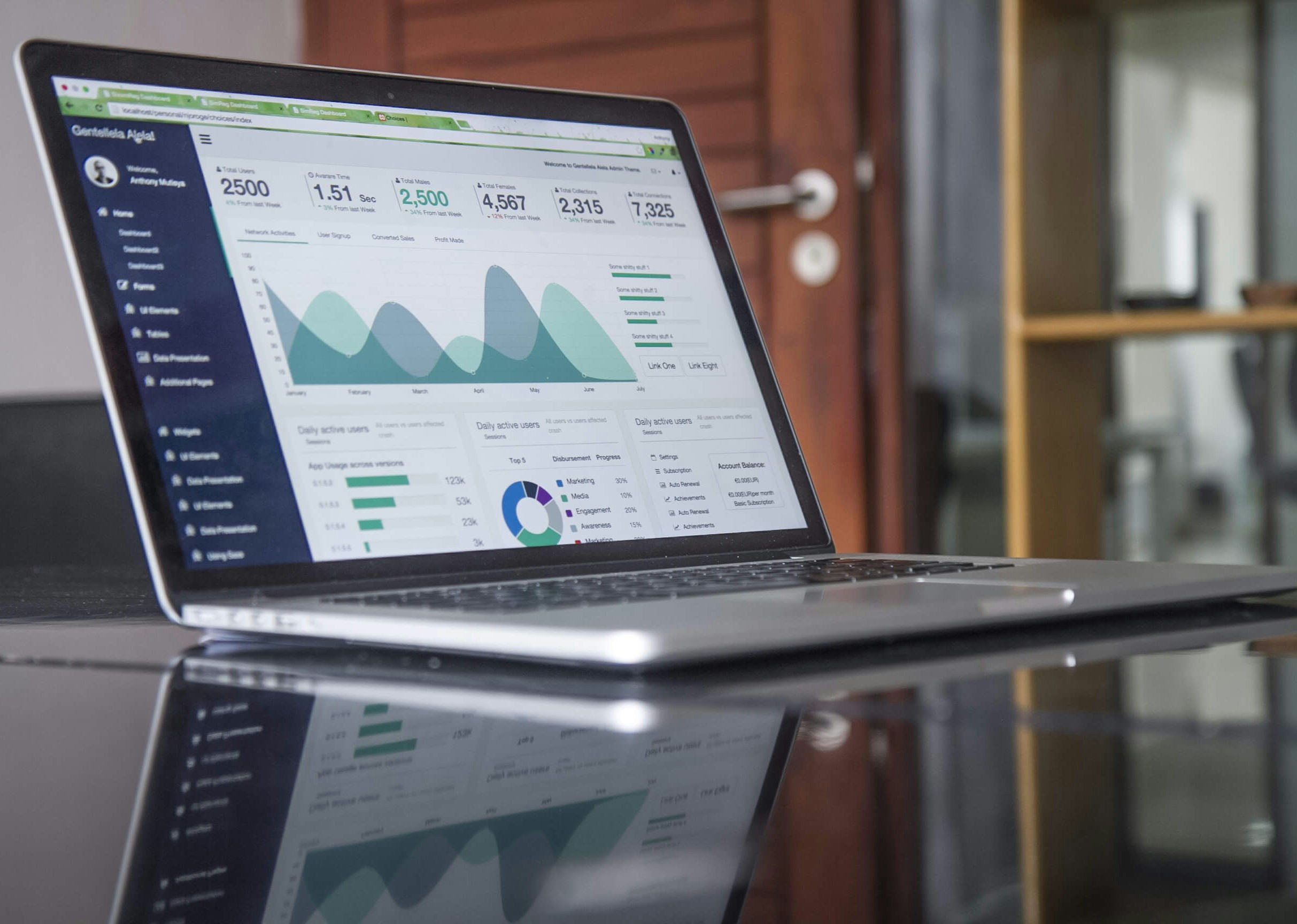
Are you looking to enhance your business operations and make smarter decisions? Leveraging big data analytics might be the solution for you. In today’s digital world, data is the most valuable asset for companies, and analyzing large amounts of data can lead to more efficient business operations. Big Data Analytics provides businesses with a competitive advantage, allowing them to identify trends, preferences, and patterns in customer behavior. By harnessing the power of big data analytics, companies can reduce costs, make faster and better-informed decisions, develop new products and services, design targeted marketing campaigns, and enhance operational efficiency. Discover the benefits of leveraging big data analytics and take your business to the next level.
What exactly is Big Data and how does it affect business?
Big Data refers to the vast amount of data that is generated from various sources, such as customer interactions, social media, and machine-generated data. It includes structured and unstructured data that is too large and complex to be processed using traditional methods. Big Data analytics involves extracting valuable insights and patterns from this data to make informed business decisions.
The impact of Big Data on business is significant. It allows companies to gain deeper insights into customer behavior, preferences, and trends. By analyzing this data, businesses can identify patterns and correlations that would otherwise go unnoticed. This information can then be used to improve products and services, enhance operations, and drive innovation.

The Impact of Big Data on Business
Big Data has revolutionized the way businesses operate. It has become a crucial tool for companies to stay competitive and thrive in today’s digital landscape. Here are some key areas where Big Data has made a significant impact:
Smarter Business Decisions
By analyzing large datasets, businesses can make more informed and data-driven decisions. Big Data analytics helps identify trends and patterns that can guide strategic planning and resource allocation. It enables businesses to understand customer needs, optimize marketing campaigns, and tailor their offerings to meet specific demands.
Efficient Operations
Big Data analytics can optimize and streamline business operations. By analyzing data from various sources, businesses can identify inefficiencies and bottlenecks within their processes. This helps them make necessary adjustments to improve productivity, reduce costs, and enhance overall efficiency.
Higher Profits
Through Big Data analytics, businesses can identify new revenue opportunities and optimize pricing strategies. By analyzing customer behavior and purchase patterns, companies can target specific customer segments and offer personalized recommendations. This leads to increased customer satisfaction and loyalty, ultimately resulting in higher profits.
Improved Customer Satisfaction
Big Data enables businesses to gain a deeper understanding of their customers. By analyzing vast amounts of customer data, companies can personalize their offerings and provide a more tailored customer experience. This leads to increased customer satisfaction, improved brand loyalty, and higher customer retention rates.
Importance & benefits of leveraging Big Data analytics
Leveraging Big Data analytics offers several benefits for businesses. It allows companies to gain valuable insights and make data-driven decisions. Here are some key benefits of using Big Data analytics:
Cost Reduction
One of the significant benefits of Big Data analytics is its potential to reduce costs. By utilizing cloud-based analytics, businesses can store and analyze large datasets without investing in expensive infrastructure. This eliminates the need for companies to maintain and update their own data centers, resulting in significant cost savings.
Furthermore, Big Data analytics can identify areas of inefficiency within business operations. By analyzing data, companies can find ways to streamline processes, reduce waste, and optimize resource allocation. This leads to cost savings and improved operational efficiency.
Smarter Business Decisions
Big Data analytics enables businesses to make smarter and more informed decisions. By analyzing large datasets, companies can uncover valuable insights and patterns that can guide their strategic planning. This includes understanding customer behavior, market trends, and competitor analysis.
In-memory analytics, combined with the ability to analyze new sources of data, such as streaming data from Internet of Things (IoT) devices, allows businesses to analyze information quickly and make well-informed decisions in real-time. This agility and responsiveness can give companies a competitive edge and help them capitalize on emerging opportunities.
Development & marketing of new products & services
Big Data analytics provides invaluable insights into customer needs and preferences. By analyzing vast amounts of customer data, businesses can understand their target market better and identify gaps in the market. This knowledge can drive innovation and lead to the development of new products and services that meet customer demands.
Furthermore, Big Data analytics can help companies identify market trends and anticipate changes in customer preferences. This allows businesses to stay ahead of the competition and maintain a competitive edge in the market.
How can companies get started with leveraging Big Data analytics?
Getting started with leveraging Big Data analytics doesn’t have to be overwhelming. Here are some practical steps that companies can take to harness the power of Big Data:
Utilize Industry Expert Data
Start by leveraging existing data sources from industry experts. These sources provide valuable insights and benchmarks that can guide business decision-making. Analyzing this data can help businesses understand customer behavior, market trends, and industry best practices.
Forecasting
Use Big Data analytics to forecast future outcomes and trends. By analyzing historical data and identifying patterns, companies can make informed predictions about customer demands, market trends, and potential challenges. This allows businesses to proactively plan and adjust their strategies to meet future demands.
Machine Learning Integration
Integrate machine learning algorithms into Big Data analytics to uncover patterns and insights that might otherwise go unnoticed. Machine learning can analyze vast amounts of data and identify correlations and predictions. By leveraging machine learning, companies can gain a deeper understanding of their customers and optimize business processes accordingly.
Targeted Content
Use Big Data analytics to design targeted content and marketing campaigns. By analyzing customer data, businesses can identify specific customer segments and tailor their content to match their needs and preferences. This personalization increases the effectiveness of marketing efforts and improves customer engagement.
Operational Efficiency
Leverage Big Data analytics to enhance operational efficiency. By analyzing data from various sources, businesses can identify bottlenecks, inefficiencies, and areas for improvement. This allows companies to streamline processes, optimize resource allocation, and reduce costs. Additionally, Big Data analytics can help identify potential issues before they occur, enabling businesses to take preventive action.
It can be used as a guideline
Big Data analytics can serve as a guideline for businesses to make informed decisions and provide quality services. By analyzing customer behavior and preferences, companies can align their offerings with customer needs. This customer-centric approach leads to improved customer satisfaction and loyalty.
Furthermore, Big Data analytics provides insights into the quality of services provided by businesses. By analyzing customer feedback, businesses can identify areas for improvement and address any issues proactively. This continuous improvement process ensures that businesses stay competitive and deliver exceptional services.

Development of products
Big Data analytics aids in the development of new products and services. By analyzing market trends and customer preferences, companies can identify gaps in the market and capitalize on opportunities. This data-driven approach to product development ensures that businesses meet customer demands and stay ahead of the competition.
Additionally, Big Data analytics can be used for forecasting future outcomes. By analyzing historical data and market trends, companies can make informed predictions about the success of new products. This helps businesses make strategic decisions and allocate resources effectively.
Machine learning can help you find patterns
Integrating machine learning with Big Data analytics allows businesses to uncover patterns and insights that might not be apparent through traditional analysis methods. By applying advanced algorithms to large datasets, companies can identify correlations and predictions that can drive business growth.
Furthermore, implementing a data-driven culture within the organization is essential. By utilizing Big Data and machine learning, companies can make data-driven decisions at all levels of the organization. This fosters innovation, improves operational efficiency, and enables businesses to stay agile in a rapidly changing market.

Enhance operational efficiency
Big Data analytics plays a crucial role in enhancing operational efficiency. By analyzing data from various sources, businesses can identify opportunities for streamlining operations and improving processes. This includes automating repetitive tasks, reducing manual errors, and optimizing resource allocation.
Additionally, Big Data analytics helps businesses identify potential issues before they occur. By analyzing historical data and patterns, companies can proactively address potential risks and take preventive action. This proactive approach to risk management ensures that businesses operate smoothly and minimize disruptions.
In conclusion, Big Data analytics has become an essential tool for businesses looking to gain a competitive edge. By leveraging the power of Big Data, companies can make smarter decisions, enhance operational efficiency, and deliver exceptional customer experiences. From cost reduction to product development and operational optimization, the benefits of leveraging Big Data analytics are significant. To get started, companies can utilize industry expert data, forecast future outcomes, integrate machine learning, and focus on targeted content and operational efficiency. By embracing a data-driven culture, businesses can unlock the full potential of Big Data analytics and thrive in today’s digital landscape.